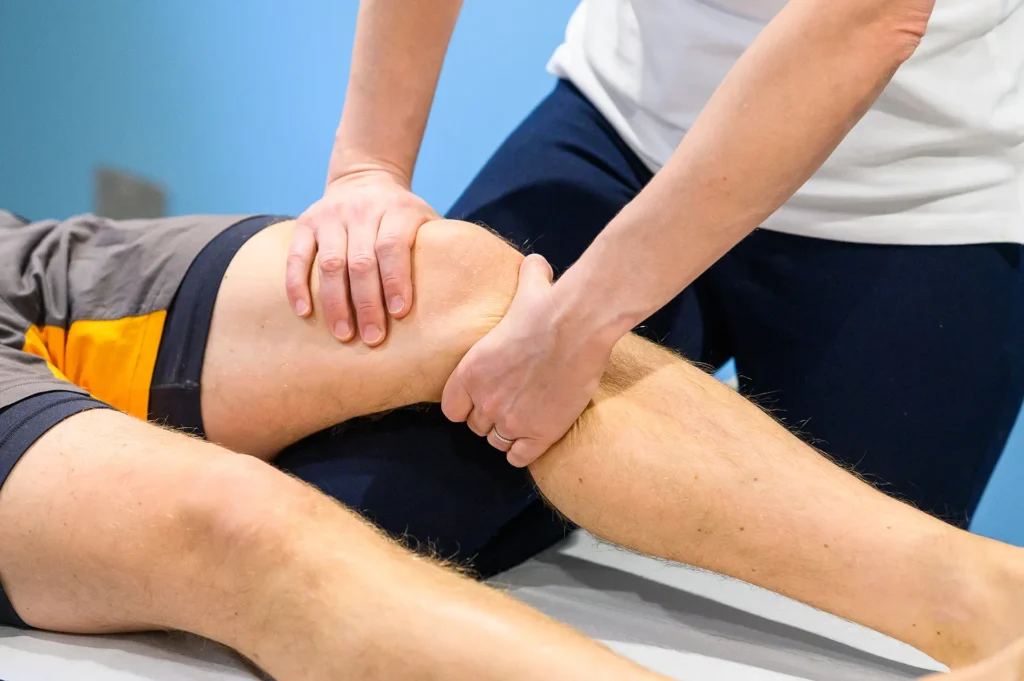Author: Anita Holmes
Recovering fro Anterior cruciate ligament (ACL) injuries are among the most challenging experiences an athlete or active individual can face. Beyond the physical demands of reconstruction and ACL rehabilitation, the psychological journey is equally significant. Navigating the mental landscape of injury, surgery, and recovery often determines the long-term success of a patient’s return to activity. This blog explores the psychological stages, challenges, and coping mechanisms involved in ACL rehabilitation.
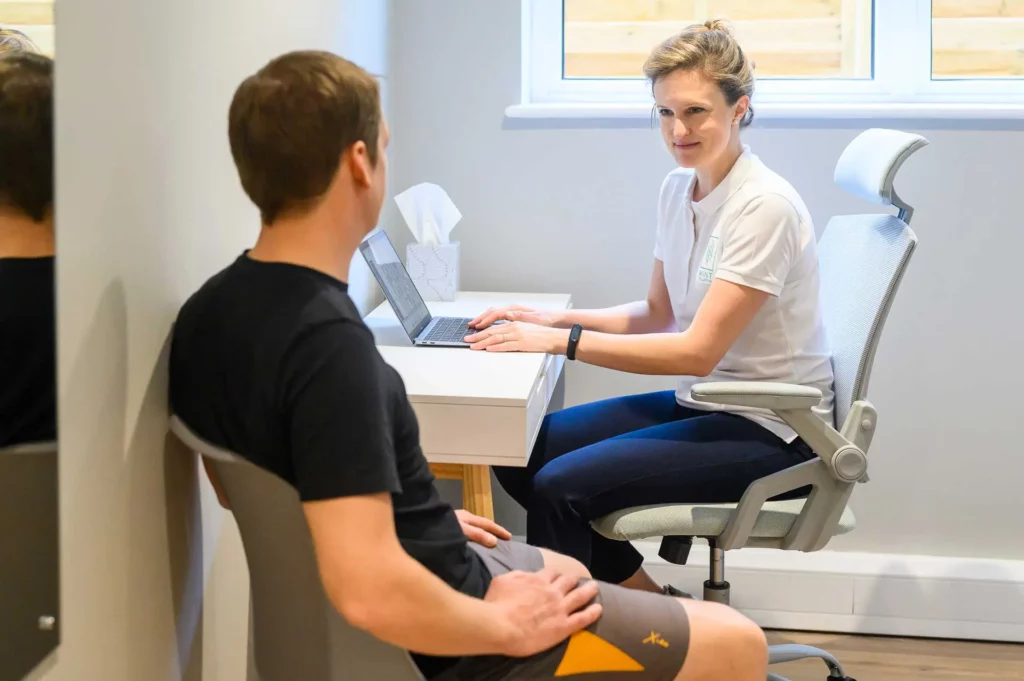
The Initial Impact: Coping with the Injury
The moment an ACL injury occurs, it’s not just the knee that takes the hit; the mind does too. Most individuals experience a whirlwind of emotions – shock, disbelief, frustration, and even grief. For athletes, this may be compounded by fears of losing their identity or the career they’ve worked tirelessly to build. A crucial step at this stage is acknowledging these feelings and seeking support. Friends, family, and professionals like sports psychologists and Physiotherapists can provide validation and tools to manage the initial emotional toll. Maintaining a sense of purpose, even if unrelated to sports or physical activity, is key to navigating this phase.
The Surgery Phase: Anxiety and Hope
Undergoing ACL reconstruction surgery is a pivotal moment that often evokes a mix of anxiety and hope. Questions about the procedure’s success, pain management, and the long road ahead can weigh heavily. However, many also feel a renewed sense of optimism—surgery represents the first tangible step toward recovery. Strategies to manage this phase include:
- Education: Understanding the surgical process and post-operative expectations helps reduce uncertainty and fear.
- Visualisation: Mentally rehearsing positive outcomes, such as walking without pain or returning to a beloved activity, fosters motivation.
- Mindfulness: Techniques like meditation and deep breathing can mitigate pre-surgery anxiety.
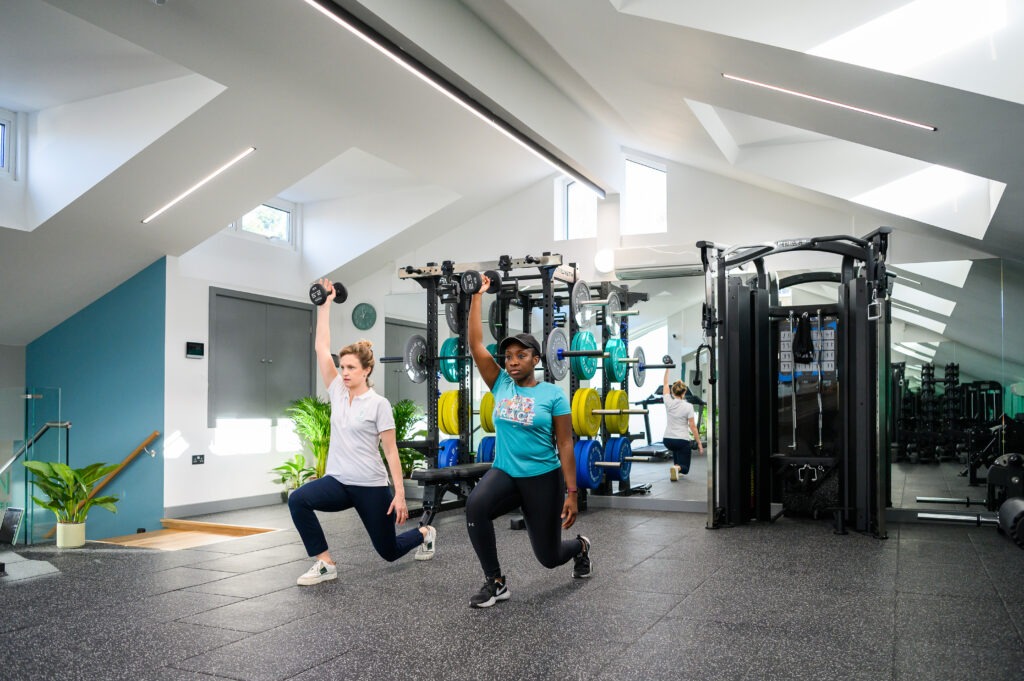
Early Recovery: Patience Meets Frustration
The days and weeks following surgery often test patience. The physical pain, restricted mobility, and dependence on others can be emotionally draining. This is when frustration and doubt often peak.
Setting small, realistic goals can help sustain motivation. Celebrating milestones- whether it’s bending the knee to a certain degree or walking without crutches, creates a sense of progress. Additionally, connecting with others who have gone through ACL recovery can provide encouragement and perspective.
The ACL Rehabilitation Marathon: Battling Plateaus and Fear
ACL Rehabilitation is the longest and arguably most demanding part of the journey. Progress can feel slow, and plateaus are common. During this phase, fear of re-injury can also surface, creating mental blocks that hinder full physical recovery.
Coping strategies include:
- Professional Guidance: Working closely with a physiotherapist ensures a structured, safe progression.
- Journaling Progress: Tracking improvements, no matter how small, reinforces a positive mindset.
- Mental Resilience Training: Techniques like cognitive-behavioral therapy (CBT) can help reframe negative thoughts and bolster confidence.
“Mint physio has been really good to me post ACL repair surgery, the team is full of expertise to help give you a tailored approach and lots of equipment to help you in ways you couldn’t on your own. Jack and Ella have been super helpful and friendly and really helped me with my ACL rehabilitation and recovery. I really couldn’t have done it without the team.”
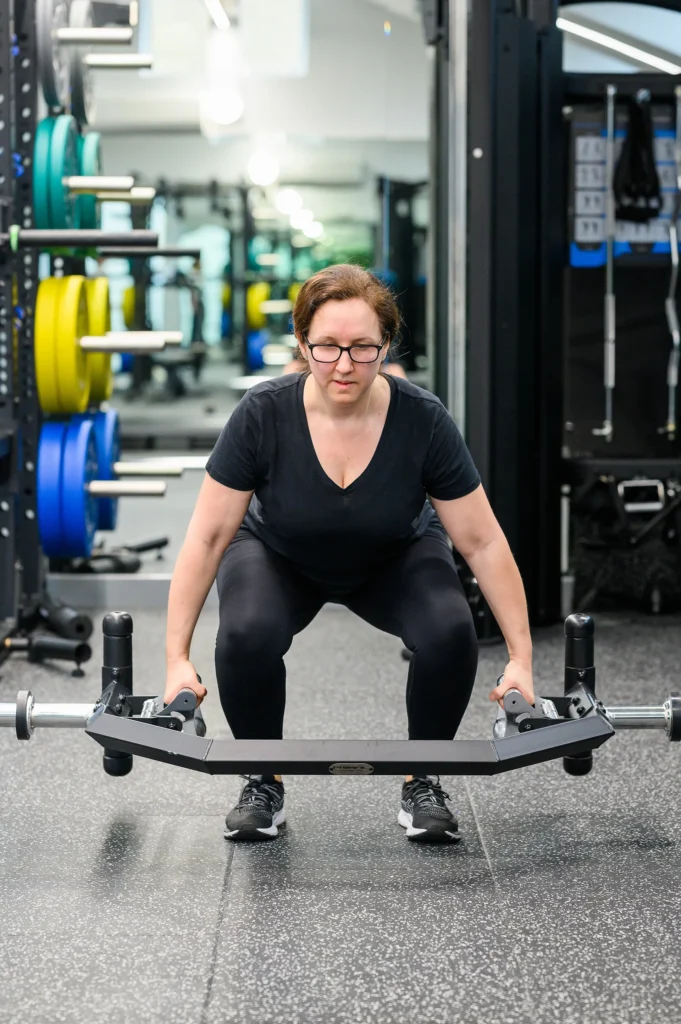
Returning to Activity: Joy and Trepidation
Finally, returning to sport or normal activities is a moment of triumph but also apprehension. It’s natural to worry about re-injury or whether you’ll perform at your previous level. This phase requires not just physical readiness but psychological readiness—a belief in your ability to handle the demands of your activity.
Using assessment tools such as the ACL-RSI questionnaire helps us to know where you stand on your confidence to return to sport.
Building psychological readiness involves:
- Support Networks: Coaches, teammates, your consultant and Physiotherapist can provide reassurance and guidance.
- Gradual Exposure: Slowly reintroducing high-impact activities to rebuild confidence.
- Positive Affirmations: Reassuring self-talk reinforces trust in the reconstructed knee.
“I cannot recommend Mint highly enough. Mint offers the perfect balance of professional expertise and personalised support in a friendly environment. After rupturing my ACL, tearing my meniscus and doing a pretty good job on my MCL too, six months post op I was able to run 5k easily, hike in the peak district and umpire netball matches. I credit the large part of my smooth recovery to the excellent work and support of Mint Wellbeing.”
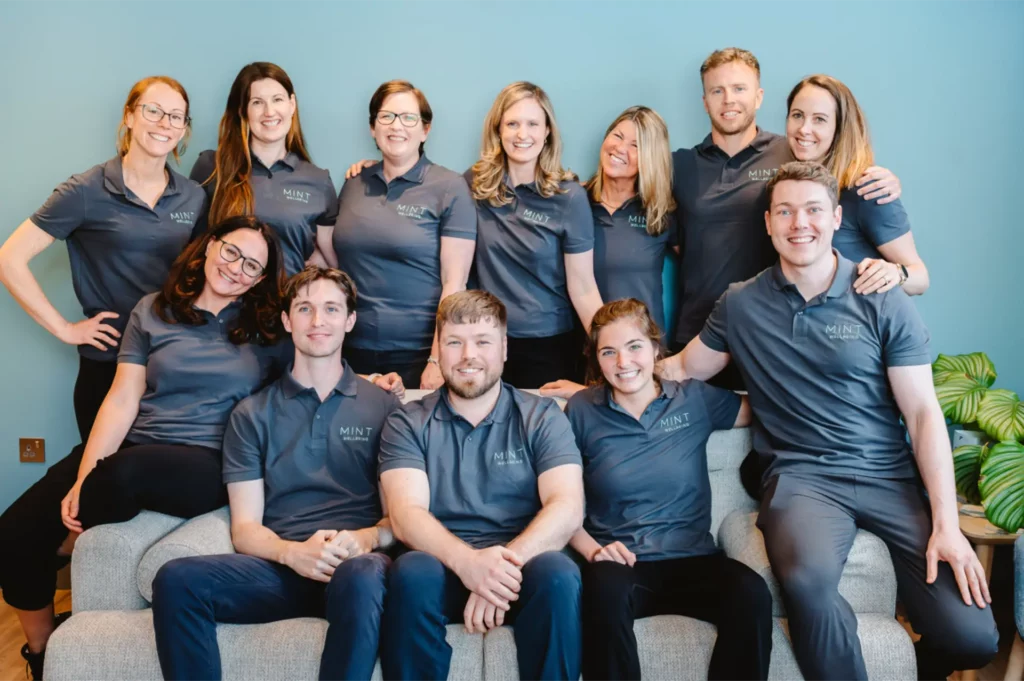
Conclusion: ACL Rehabilitation is long and hard but with the right support you can do it!
Recovering from an ACL injury is as much a psychological journey as it is a physical one. Addressing the mental hurdles, from initial despair to the cautious optimism of return to normality, is essential for a well rounded recovery. With the right mindset, support, and strategies, individuals can emerge from ACL reconstruction not only healed but also mentally stronger and more resilient. You should be proud of all you have achieved whilst going through it and afterwards.

